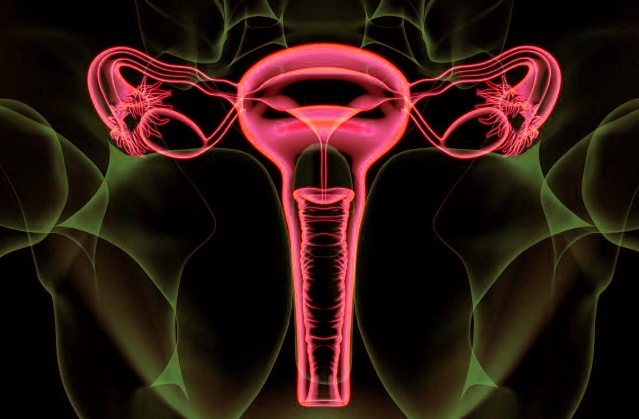Nikhil Prasad Fact checked by:Thailand Medical News Team Feb 19, 2025 1 month, 3 weeks, 1 day, 2 hours, 16 minutes ago
Medical News: Understanding the Impact of COVID19 on Female Fertility
The COVID-19 pandemic has affected millions worldwide, raising concerns about its impact on various aspects of health, including reproductive health. While much attention has been given to respiratory and cardiovascular complications, researchers are now investigating how the virus influences fertility, particularly in women. A new study from The Second Hospital of Shandong University and the State Key Laboratory of Reproductive Medicine and Offspring Health in China has revealed significant changes in the ovarian microenvironment of women who had COVID-19, potentially affecting the quality of embryos and their ability to develop into healthy pregnancies.
 COVID-19 Alters Ovarian Health and Affects Embryo Quality
COVID-19 Alters Ovarian Health and Affects Embryo Quality
This
Medical News report delves into the study’s findings, which demonstrate how SARS-CoV-2 can alter key biological processes in the ovaries, leading to changes in gene expression, metabolism, and lipid composition. These disruptions could reduce the quality of developing embryos, raising concerns for women trying to conceive, especially those undergoing fertility treatments.
How the Study Was Conducted
To understand how COVID-19 affects female fertility, researchers analyzed granulosa cells and follicular fluid from nine women who had COVID-19 and 17 women who had not. Granulosa cells play a crucial role in nurturing the egg, while follicular fluid provides essential nutrients for the developing oocyte. By using advanced scientific techniques like transcriptomics, proteomics, metabolomics, and lipidomics, scientists examined changes at the genetic and biochemical levels.
Key Findings
The researchers found that several key genes and proteins were significantly upregulated in the ovarian microenvironment of women who had recovered from COVID-19. Among them, Myxovirus resistance 1 (MX1) and interferon-stimulated gene 15 (ISG15) were the most affected. These genes are typically associated with viral defense responses but were found to be elevated in the ovaries of affected women. This suggests that even after recovering from COVID-19, the immune system might continue to be hyperactive, potentially harming reproductive health.
Key Changes in the Ovarian Microenvironment
One of the most important findings was that higher levels of MX1 and ISG15 were linked to a lower chance of developing good-quality embryos. When these genes were overexpressed, the likelihood of forming high-quality blastocysts (early-stage embryos) decreased significantly. This means that women who had COVID-19 may experience difficulties in achieving successful pregnancies, especially if they are undergoing assisted reproductive treatments like in vitro fertilization (IVF).
Additionally, the study found that COVID-19 led to an increase in interferon-beta (IFN-β) and interferon-gamma (IFN-γ) in follicular fluid. These immune-related proteins were also associated with poorer embryo development, reinforcing the idea that the immune system&r
squo;s response to COVID-19 can negatively impact fertility.
Changes in Metabolites and Lipids
Beyond genetic changes, COVID-19 also altered the metabolic and lipid composition of the follicular fluid. Several important metabolites that support embryo quality were found to be lower in COVID-19 patients. These included:
-Diclofop
-DL-Tryptophan
-1-(9z,12z-octadecadienoyl)-2-hydroxy-sn-glycero-3-phosphoethanolamine
-4-(2-hydroxyethyl) piperazine-1-ethanesulfonic acid
-Phe-met-arg-phe-amide
A lower presence of these metabolites was linked to a reduced ability to form two-pronuclear zygotes (2PN), an important early stage of embryo development. Conversely, the study found that sn-glycerol-3-phosphoethanolamine, a lipid component that was increased in COVID-19 patients, was linked to lower fertilization rates, suggesting a negative effect on embryo formation.
Interestingly, some lipids appeared to be beneficial. Sphingomyelin (phSM) and Hexosyl1 ceramide (Hex1-Cer) were found to be lower in COVID-19 patients but were associated with higher chances of fertilization and embryo formation. This highlights that while COVID-19 disrupts many reproductive processes, some biological mechanisms may still work in favor of fertility.
The Broader Implications of the Findings
The results of this study suggest that COVID-19 can have lasting effects on the female reproductive system. While the virus does not directly infect ovarian cells, its ability to trigger immune responses and alter metabolic pathways can impact egg quality and embryo development. This may be particularly concerning for women who are trying to conceive, either naturally or through assisted reproductive technologies.
Women who have recovered from COVID-19 and are planning to undergo fertility treatments should consider discussing these findings with their doctors. Further research is needed to understand whether these changes are temporary or if they can have long-term consequences on fertility.
Conclusion
The study conducted by The Second Hospital of Shandong University provides strong evidence that COVID-19 can affect female fertility by altering the ovarian microenvironment. The upregulation of immune-related genes such as MX1 and ISG15, along with changes in key metabolites and lipids, could lead to poorer embryo quality and reduced chances of successful pregnancy.
While some metabolites and lipids showed potential benefits, the overall findings highlight the complexity of how COVID-19 impacts reproductive health. The study emphasizes the need for further investigations with larger sample sizes to determine the full extent of these effects. Additionally, understanding whether these changes persist over time or can be reversed with medical intervention remains a critical question.
For women who have had COVID-19 and are facing difficulties in conceiving, it may be beneficial to undergo fertility assessments to evaluate potential risks. Healthcare providers and fertility specialists may need to consider these findings when advising patients about pregnancy planning and fertility treatments.
The study findings were published in the peer-reviewed journal: Signal Transduction and Targeted Therapy
https://link.springer.com/article/10.1038/s41392-025-02156-4
For the latest COVID-19 News, keep on logging to Thailand
Medical News.
Read Also:
https://www.thailandmedical.news/news/covid-19-impairs-ovarian-function-and-causes-premature-ovarian-failure-in-women-below-40
https://www.thailandmedical.news/news/australian-scientists-warn-of-rising-advanced-breast-cancer-cases-in-the-current-covid-19-era
https://www.thailandmedical.news/news/restoring-muscle-strength-in-women-after-covid-19-through-physiotherapy
https://www.thailandmedical.news/news/persistent-endothelial-dysfunction-oxidative-stress-and-lipid-peroxidation-are-found-in-women-with-post-covid-19-health-issues
https://www.thailandmedical.news/pages/thailand_doctors_listings
